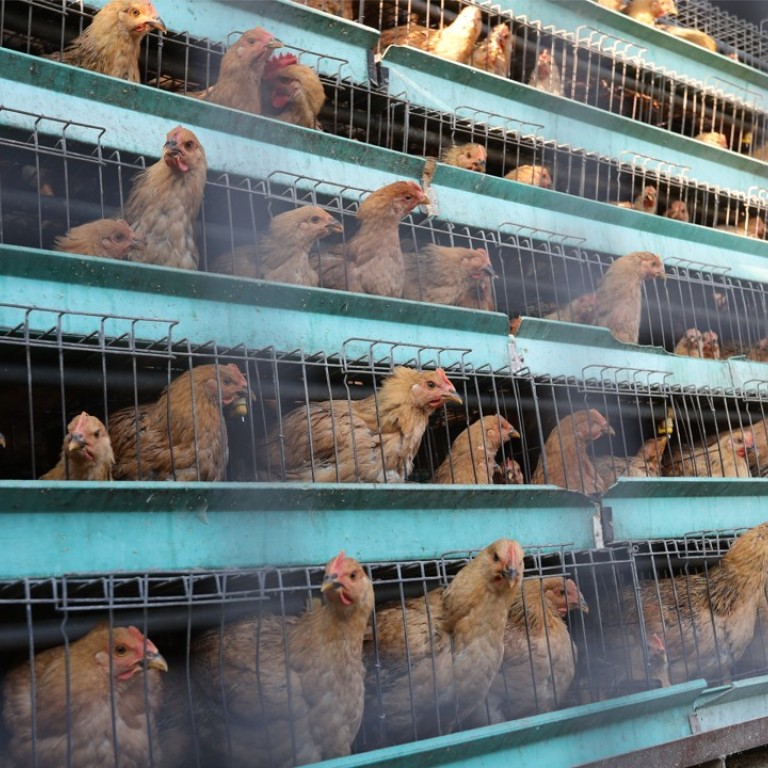
Hong Kong to remain vigilant over bird flu threat, health chief Sophia Chan vows, as Japanese research confirms H7N9 virus can be transmitted via respiratory droplets
- University of Tokyo researchers find healthy ferret infected with virus after sick animal placed in separate cage 7cm away
Hong Kong’s health minister promised the government would stay alert over any possible outbreak of bird flu in the city as new research in Japan confirmed the H7N9 virus could be transmitted via respiratory droplets.
Secretary for Food and Health Sophia Chan Siu-chee on Sunday said the government had done a lot in the prevention and surveillance of bird flu at local farms and markets selling live poultry.
“We will continue to communicate with international organisations and health organisations to understand more about avian flu and the risks,” she said.

Her remarks followed a report that University of Tokyo researchers had confirmed the H7N9 bird flu virus could be transmitted via respiratory droplets.
Researchers placed a healthy ferret and one infected with the virus in separate cages 7cm apart. Four days later, they found the healthy ferret was infected. Droplets containing the virus were found 80cm from the sick animal.
Bird flu scare shuts down popular songbird garden for 21 days
H7N9 is a subtype of the influenza virus which has been detected in birds in the past. It was first seen in people in 2013 in China. Most patients infected become severely ill.
Most of those infected had reported recent exposure to live poultry or potentially contaminated environments, especially markets where live birds were sold, the World Health Organisation (WHO) said.
The virus does not appear to transmit easily from person to person, and sustained human-to-human transmission has not been reported.

As of October 27, there had been 1,567 human cases of H7N9 reported globally since March 2013. Hong Kong had 21 cases, all imported.
University of Hong Kong microbiologist Dr Ho Pak-leung said research by Chinese scientists in 2013 obtained similar findings to the Japanese study.
Hong Kong on alert after China confirms first human H7N4 bird flu case
“This is not something new. That bird flu can be transmitted via respiratory droplets is widely accepted in medical circles.”
Citing the WHO’s surveillance programme, Ho said the risk of a large outbreak remained low.
“But I am not suggesting people take it lightly,” Ho said. “It is no laughing matter if a person gets bird flu. People should avoid going to markets where live poultry is sold and keep good personal hygiene and wash their hands.”


